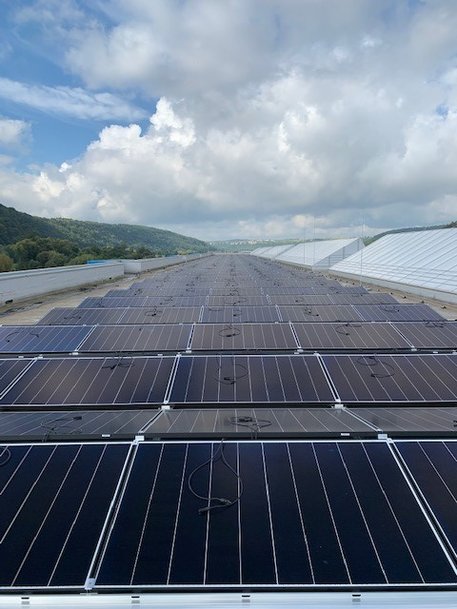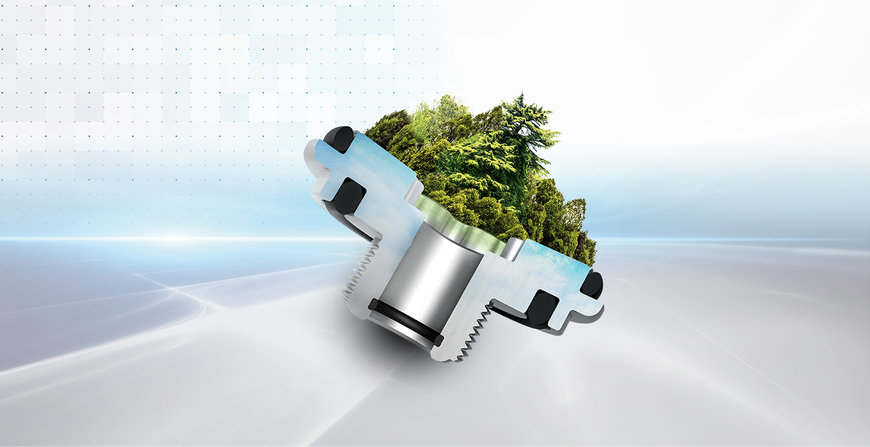www.magazine-industry-usa.com
10
'22
Written on Modified on
Management of energy consumption, climate-neutral production
As many companies are now doing, ARNOLD Umformtechnik regularly draws up greenhouse gas balance sheets to keep a constant eye on the potential for climate protection measures across the whole company. Collecting data for a meaningful climate balance sheet is costly and complex, but it pays off: production at the manufacturer of high-quality fastening systems and precision parts has been classed as climate-neutral since 2021.

Besides the many buzzwords like climate change, Kyoto Protocol and greenhouse gas emissions, industrial companies are conscious that they too have a responsibility for the welfare of future generations and our planet Earth.
ARNOLD Umformtechnik, the international market leader for high-performance fastening systems and precision parts, wants to lead by example and concentrate its efforts: energy consumption and thus greenhouse gas emissions at the production sites are to be reduced even further.
In the ambitious plans, climate-neutral production is an important component, as Frank Agner, Managing Director at ARNOLD, underlines. "ARNOLD acts according to the three-fold principle of avoid, reduce and compensate. Whereby compensation is seen as the last resort, to offset emissions that are still currently unavoidable."
At ARNOLD, the estimated volume of emissions is reported in a climate balance sheet: In 2018, a climate balance sheet (also known as CO2e or greenhouse gas balance sheet) was prepared for the first time for the Dörzbach, Ernsbach and Neu-Kupfer sites. The data for preparing the 2021 climate balance sheet is currently being collected.
With the help of KlimAktiv Consulting GmbH, a consulting firm for individual climate protection strategies and climate neutrality based in Tübingen, a “trove” of meaningful data is being collected and published. The Greenhouse Gas Protocol (GHG) together with the ISO 14064 standard are the standards used to prepare the climate accounts.
The GHG Protocol is the most widely used standard for climate balance sheets worldwide. In the GHG Protocol, CO2 emissions are determined in different scopes: Scope 1 (direct emissions), Scope 2 (indirect emissions from energy purchases) and Scope 3 (upstream and downstream indirect emissions). For climate neutrality, the focus is currently on Scope 1 & 2, as the basic data and ability to influence Scope 3 are not yet sufficient. All three scopes are recorded and analysed in detail in the balance sheet.
For Frank Agner, the figures in the balance sheet are very revealing. In the words of the managing director: "We can identify relevant emission sources in the company and as a result, we are able to put effective reduction measures in place and further reduce our greenhouse gas emissions in future. In the context of climate change, not only our customers but also the local population in the region expect us to provide more transparency about how we are making the business model even more sustainable."

ARNOLD will have invested around four million euros in energy management between 2018 and 2023.
To optimize its own emissions, ARNOLD's energy management team is pursuing both operational and strategic goals. On the strategic side, energy flows are to be made more transparent and energy consumption further reduced. The level of procurement of thermal and electrical energy will also drop further to continue to reduce CO2 emissions.
ARNOLD is pursuing operational goals in energy management by, among other things, optimizing the lighting systems and reducing the consumption of compressed air, heating oil and electricity. The company also has high hopes for a project to recover heat from the exhaust air in the hardening shop. To further reduce CO2 emissions and ensure climate-neutral production, ARNOLD intends to increasingly use green electricity. The indirectly sourced energy (Scope 2) that ARNOLD requires for its business operations is already certified by Guarantees of Origin as energy from renewable sources.
Since 2021, ARNOLD has been offsetting unavoidable emissions in Scope 1 with Gold Standard certificates. The Gold Standard was developed in 2003 by the World Wildlife Fund (WWF) and other non-governmental organizations (NGOs) focus CO2 emission reduction projects not just on environmental compatibility, but also to stimulate sustainable development at local community level. The Gold Standard is held to be one of the highest standards currently available for climate protection projects.
Since 2021, in a cooperative partnership with KlimAktiv Consulting GmbH, and following their recommendations, ARNOLD has been providing support to a carefully selected climate protection project. For ARNOLD, an important criterion was that the project selected be based on technology. Technology-based projects, in comparison to reforestation projects for example, ensure that they actually deliver the desired reduction of CO2.


